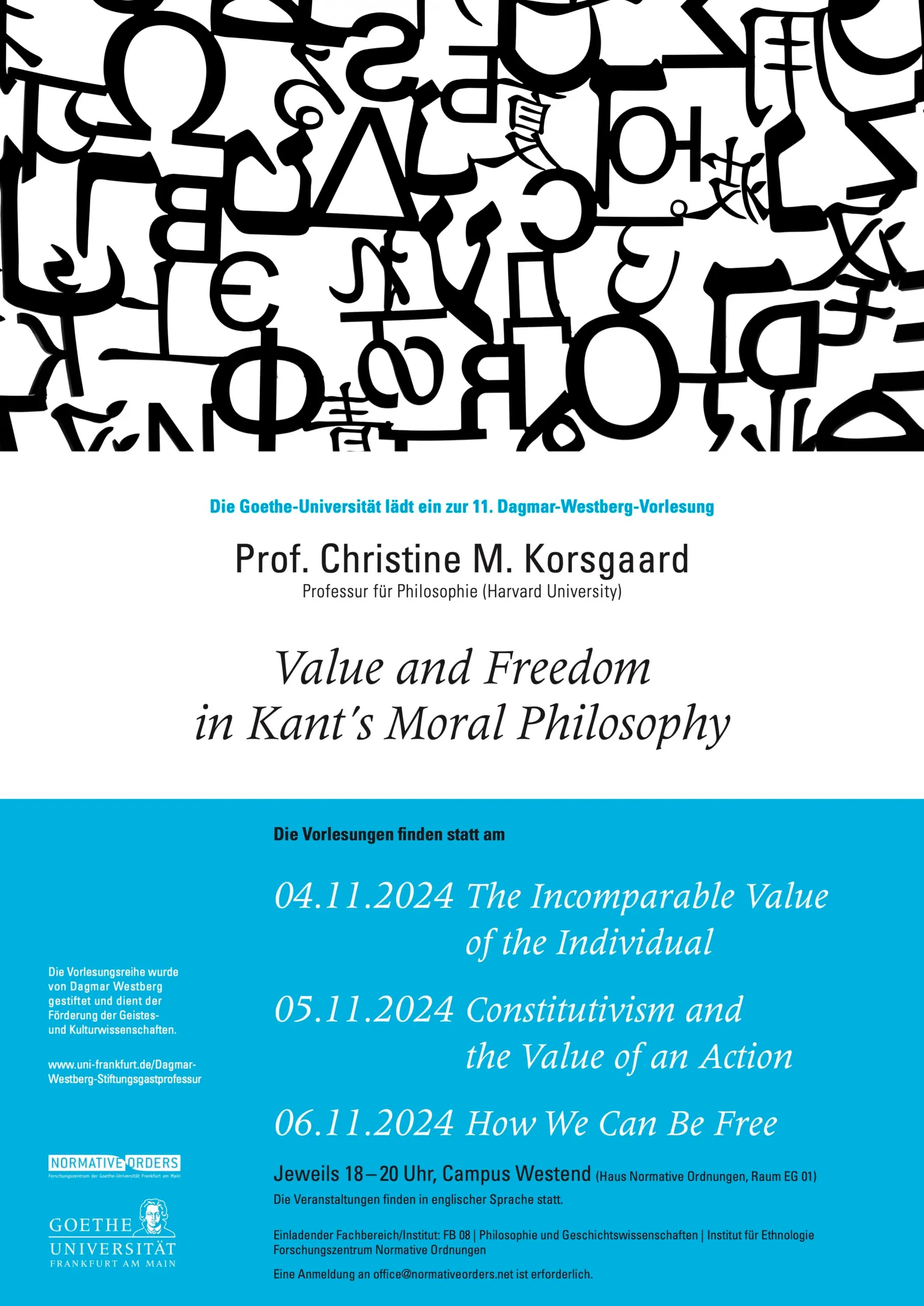Constitutivism and the Value of an Action
Second lecture of the 11th Dagmar Westberg Lectures
By Christine M. Korsgaard. Korsgaard is one of the most important moral philosophers and Kant interpreters of our time. Her work is dedicated, among other things, to a justification of human dignity, a foundation for our right actions and the justification of the moral status of animals. In the Dagmar Westberg Lectures, she explores central questions of Kant’s practical philosophy in three lectures, which she interprets in an innovative way. The first lecture deals with the incomparable value of the individual and explores what it actually means to be an “end in itself”. The second lecture is dedicated to the connection between right and good action and identifies their autonomy as an essential characteristic. Finally, the third lecture will focus on morality as a condition of our freedom.
Please register at office@normativeorders.net.



